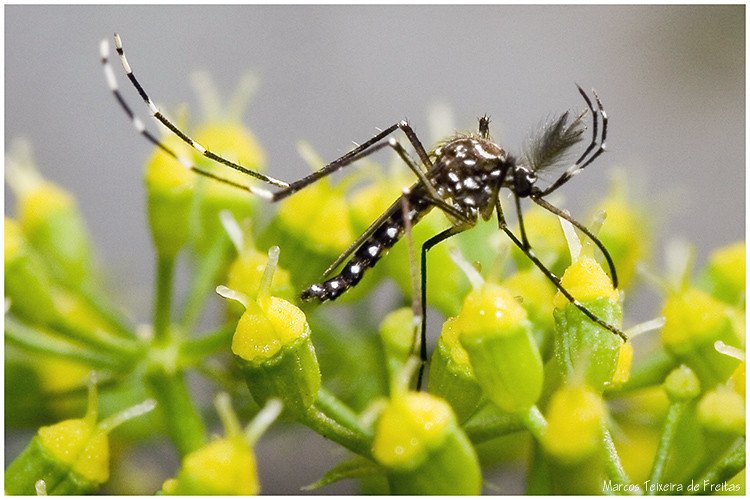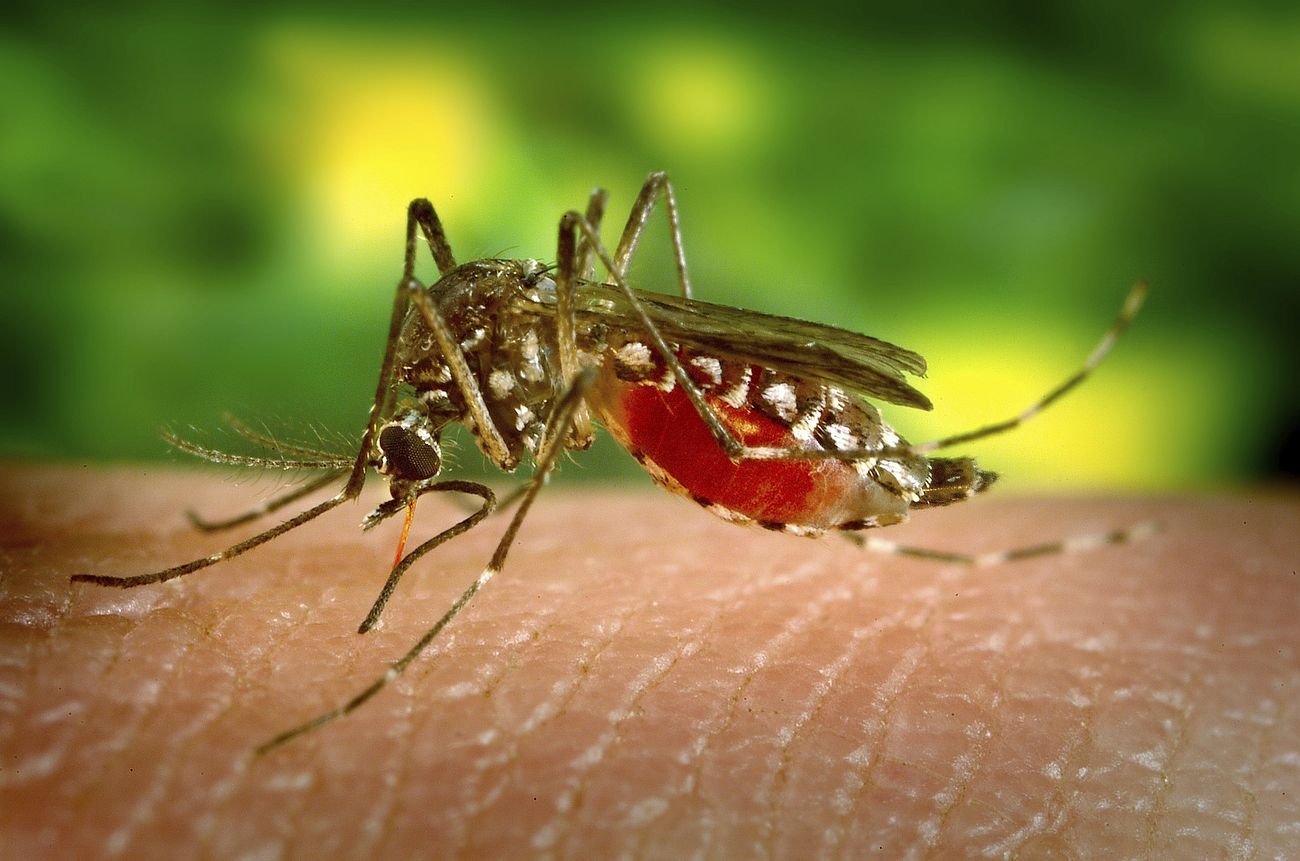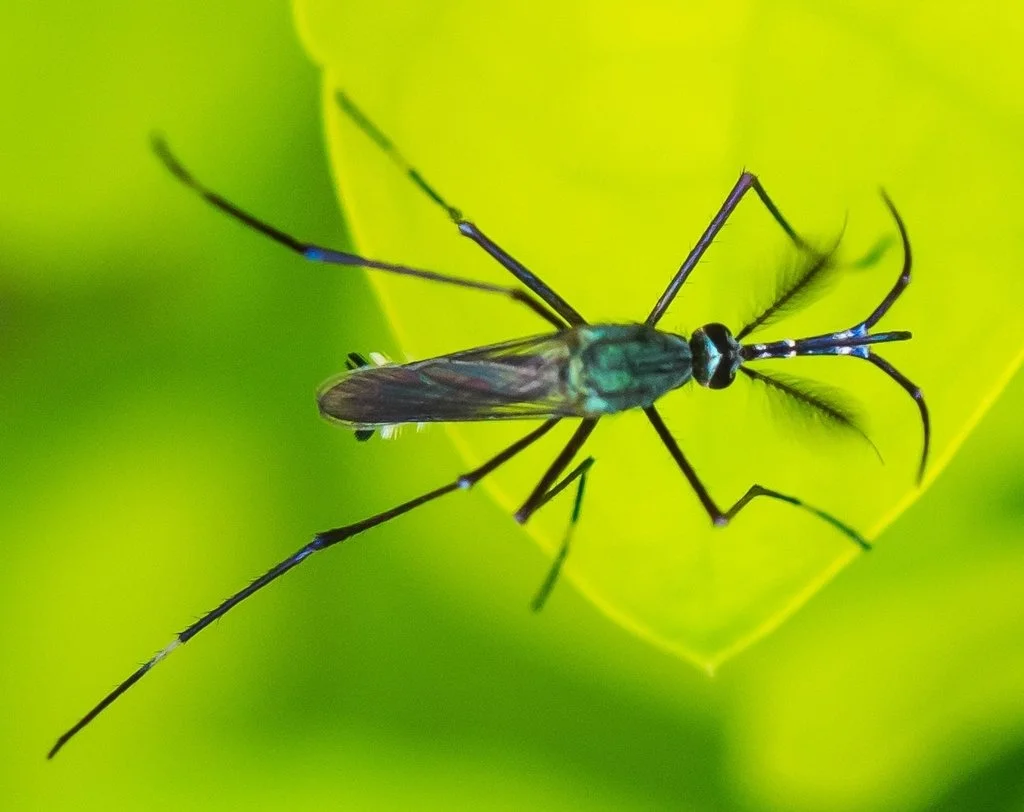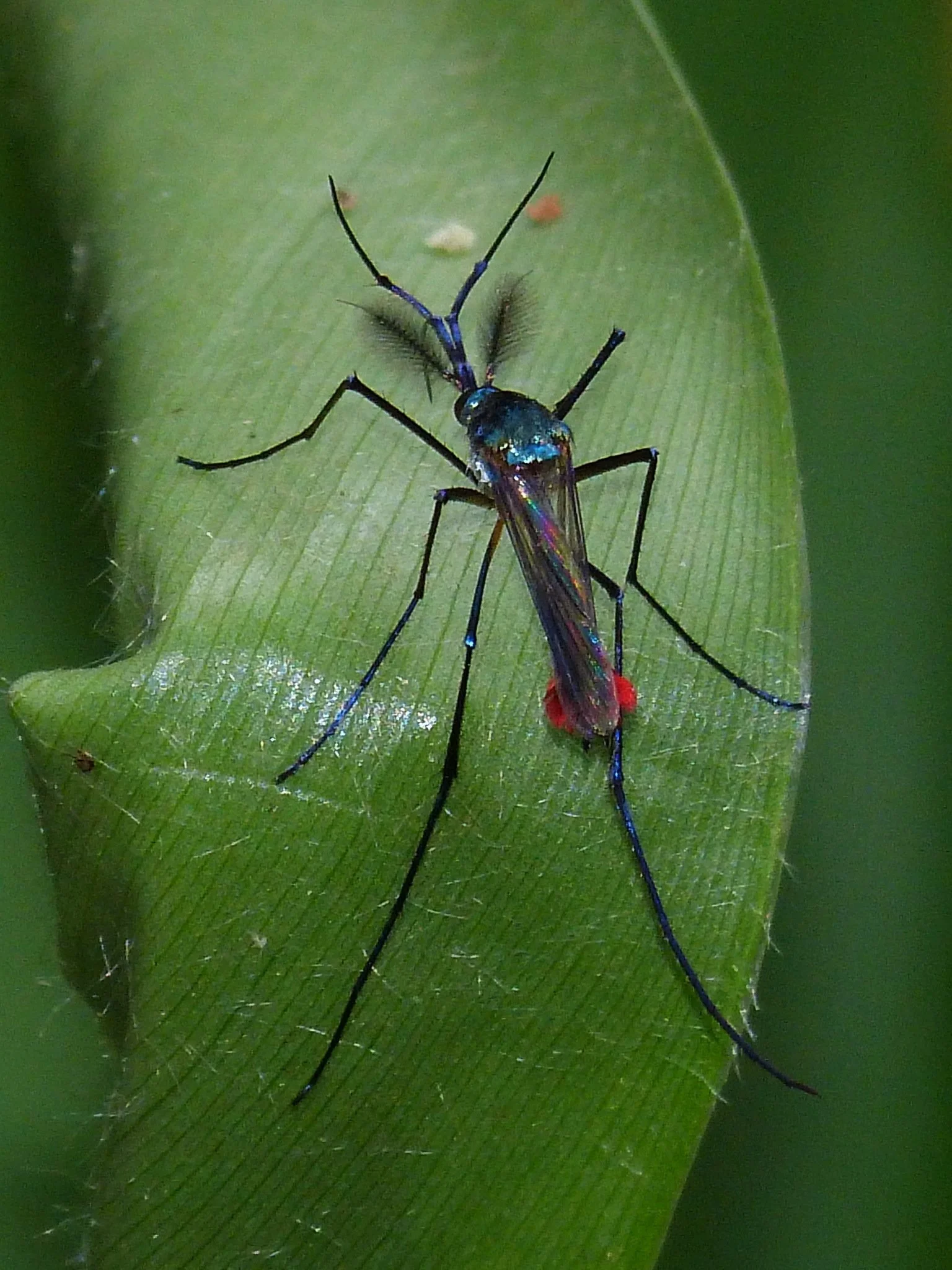Yes, Some Mosquitoes Only Drink Nectar
We all know what a mosquito is. That tiny vampire that ruins our outdoor activities. I’ve been chased out of the woods many times by these undersized bullies. But not all mosquitoes want you to be their next blood donor.
After college I worked at the Smithsonian curating their newly acquired mosquito collection from the Pacific Islands. I went through tens of thousands of mosquitoes, labeling them, learning their names and life history. A few of them stood out, colored in iridescent bright pinks and blues.
One of these was the true mosquito hawk, not the cranefly that most of us think of. It’s scientific name is Toxorhynchites, but some call it the elephant mosquito, and it doesn’t suck blood at all. In fact as a larvae it voraciously eats other mosquito larvae.
Male Mosquitoes Don’t Eat Blood
Male mosquitoes have fuzzy antennas
Male mosquitoes only eat nectar and don’t bite you. But they still come to the party. Males still chase you down and buzz around your head because they are looking for a mate. Once the female mosquito gets a blood meals she can make eggs and that male want to get his chance. Male mosquitoes feed on nectar and only live for about a week.
Males have bushier antennae than females, which helps them detect the scent and specific wing beats of females.
Why Do Female Mosquitoes Suck Blood?
They need proteins to make their eggs develop. Before they're fertilized, they'll eat nectar like males do. A few days after a blood meal, female mosquitoes lay about 200 eggs on any water surface — even small water bodies such as bottom trays of planted pots, bird baths, drains.
Most species produce egg 'rafts' where many eggs are cemented together, floating until they hatch after two to three days. That’s why the mosquito dunks are so effective at controlling mosquitoes - because all of their larvae hatch around the same time.
Why Did Males Lose the Ability to Suck Blood?
Scientists think it might have been due to the emergence of flowering plants offering alternative food sources.
Closer inspection of two 130-year-old male mosquitoes fossilized in amber has revealed that they too had the mouthparts to suck blood
Mosquitoes That Don’t Suck Blood
There are dozens of species that, like the elephant mosquito and its close relatives, never drink blood as adults. But to tell the truth, most of them do.
Humans aren’t always on the menu, though. Hematophagus, or blood-sucking, mosquitoes also feast on frogs, crocodiles, earthworms, armadillos, manatees and even mudskipper fish.
In the forests of the Eastern U.S. lurks a mosquito so large, it dwarfs nearly all of its 3,570 relatives. Buzzing through the trees during the day, her long legs trail beneath her as she sniffs out her next meal. When her antennae sense and lock onto her target, the monstrous mosquito extends her long, curved proboscis and inserts it into the soft center of a flower to slurp up the sweet nectar.
Toxorhynchites, that do not feed on blood as adults. These mosquitoes, sometimes called elephant mosquitoes or mosquito eaters, primarily consume plant sugars like nectar and honeydew.
Mosquitoes in the genus Malaya, poach their sugars from other insects. Using their antennae and short proboscis, they will stroke the faces of ants and aphids, causing them to regurgitate a sweet liquid called honeydew from their mouths.
Uranotaenia sapphirina feeds on amphibians and reptiles. Research conducted in Costa Rica suggests that females of this little species have the ability other mosquitoes may not possess—acoustic sensitivity. Some researchers believe they may even have special sensory abilities. While some male mosquitoes are attracted to the noise of their female counterparts, Uranotaenia lowii is the only known species where females may utilize acoustic sensitivity to find an amphibian bloodmeal.
Culiseta melanura primarily feeds on birds and rarely bites humans. Adult female Culiseta melanura primarily take blood meals from birds such as the American robin, wood thrush, and gray catbird.







